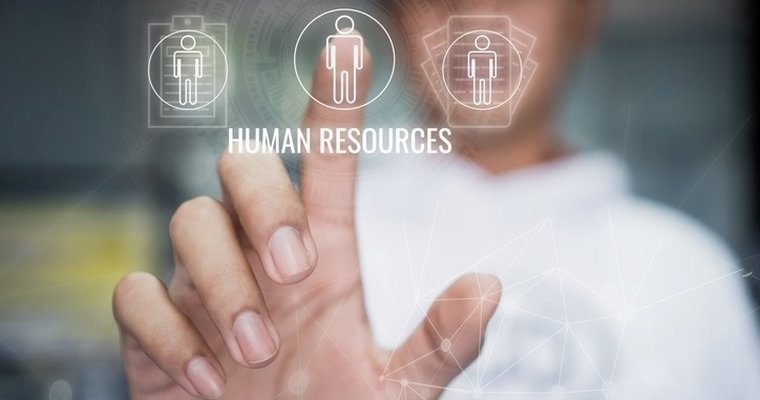As HR has taken on more importance, self-serve technology allows HR managers to focus on other tasks rather than assisting employees with routine tasks.
 Image provided by iStock.
Image provided by iStock.
In just about every industry, finding and keeping employees has become the major challenge in what has become known as «The Great Resignation.»
In many companies, the HR department has taken on more importance than ever. As a result, businesses are looking to HR technology, such as HR self-serve kiosks, to automate HR tasks and make them more efficient.
More than half (55%) of 764 HR professionals across various industries interviewed said their companies were spending more on HR technology, according to the 2022 TrustRadius Trends survey.
Nearly half (45%) were spending more to upgrade their existing tech stack, while 38% were purchasing new technology.
As might be expected, the focus was especially pronounced for companies in technology related industries.
Technology companies were more likely than other companies to increase their HR tech spending, whether on new technology (56% for technology companies versus 37% for all industries) or to improve existing technology stack (67% versus 44%).
Digitization pre-dates COVID
The digitization of talent management certainly didn’t start with COVID.
A 2022 study by the Hackett Group, a management consulting company, found that while COVID accelerated digitization for many businesses, more than half (52%) of the companies surveyed had already «substantially increased» their use of digitization in talent management processes.
These findings point to a greater role for self-serve HR kiosks, which is consistent with the one of the findings in the 2022 Kiosk Marketplace Census: 10% of user organizations participating in the census operated HR/employee self-serve kiosks, one of the most frequently cited kiosk applications in the Kiosk Marketplace study.
Self service benefits both employees and staff
For some time, employers have found HR kiosks helpful in providing employee orientation.
Employees also use HR kiosks to print and view pay stubs, view vacation schedules, access benefit information, read company announcements and, if necessary, access safety guidelines and material handling data sheets.
As HR has taken on more importance, self-serve technology allows HR managers to focus on other tasks rather than assisting employees with routine tasks.
As early as 2018, employees were utilizing more self-service tools to perform HR tasks, such as tracking time and attendance and accessing their check stubs, according to a Paychex white paper.
Employee sessions on Paychex Flex, an online platform, indicated employee self-service increased from 20% to 36% from 2016 to 2018.
The Paychex report attributed this change to the finding that Millennial and Generation Z employees by 2019 comprised nearly half (46.6%) of workforce as having grown up in a period of technological change that has influenced nearly every aspect of their lives.
HR technology diversifies
While studies point to a boost in HR technology investment, self-service technologies were not the top focus according to a 2020 survey of more than 3,000 senior managers and IT staff by Pegasystems, a provider of cloud software for customer engagement and operational improvement.
Cloud-based solutions and artificial intelligence were cited as the top two investments by a 51% majority of respondents in the Pegasystems study.
Video conferencing was the runner up, cited by 48%, followed by Internet-of-things sensors at 43%.
Customer self-service was cited by 40% of respondents, along with collaboration software and supply chain technologies.
Experts weigh in
HR experts interviewed by Kiosk Marketplace concurred that self-service will continue to have a place in worksites, especially those with large populations such as manufacturing and retail. Job applicants can fill out applications on kiosks, while HR staff can then run background checks on those applications. Kiosks also come in handy at job fairs.
 |
Stephanie McGreah |
At the same time, mobile devices are supplanting the need for kiosks in some situations, noted Stephanie McGreaham, partnership director for the Americas for Howspace, a Helsinki, Finland based AI powered digital facilitation platform to drive dialog and collaboration in remote and hybrid work environments.
In an earlier role as HR director for a service industry company, the commercial vehicle drivers had tablets for ordering.
«That was essentially their kiosk,» McGreaham said during a Zoom call. «They can punch in from their tablet, but only once they get on company property and then essentially manage everything…from that one tablet.»
«The phone has really taken over a lot of that,» agreed Larry Cummings, co-founder and chief connector at HRTech Alliances, a forum for HR organizations to develop talent, during a Zoom call. «It’s just so much easier to do that (self service) with everybody having a smart phone.»
 |
Larry Cummings |
Kiosks offer unique benefits
Self-serve kiosks will, however, have a place in companies involved in social network analysis, Cummings said.
«You can’t always get something (data) off of a smart phone that is owned by ‘bring your own device,'» he said. «There’s a certain element that you have to have some type of software that you have permission for those communications.
«Those type of data collections are the growing element,» Cummings said, speaking for the HR industry. This includes integrating non-HR data collection systems into HR for workforce intent.
«We could actually find the intentions of everybody (employees) if we look at all this data,» he said.
 |
Ward Christman |
Ward Christman, co-founder, HR Tech Alliances, sees a continuing need for kiosks for employee feedback surveys.
«There are a ton of rewards and recognition type companies that I could see potentially leveraging that environment,» Christman said in a Zoom call.
In addition, point-of-sale equipment providers are expanding into the HR environment that could incorporate feedback applications.
«If somebody’s there ringing the register, they’re one click or two away from answering a survey, ‘how are you feeling today’?» Christman said.
Christman agreed manufacturing will continue to use self-serve HR kiosks.
«From a learning standpoint, not everybody has broadband access, so if you’re trying to watch a video or training video how to do something for your job, a kiosk could help with that whereas maybe if they’re in an area where they don’t have access to a cell tower or 5G, how are they going to do that?» Christman asked.
Head shots: LinkedIn

